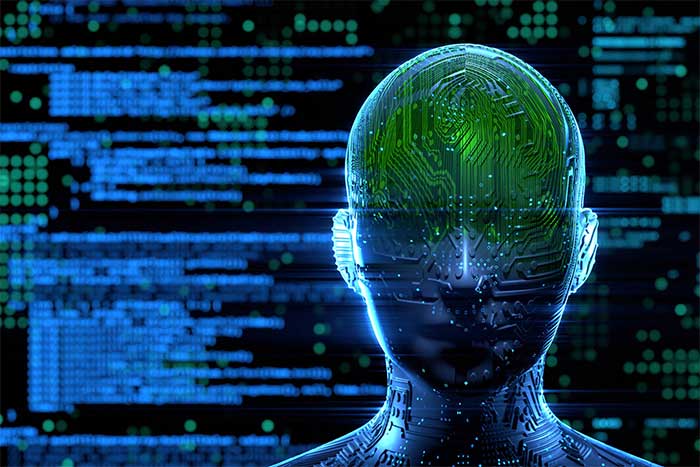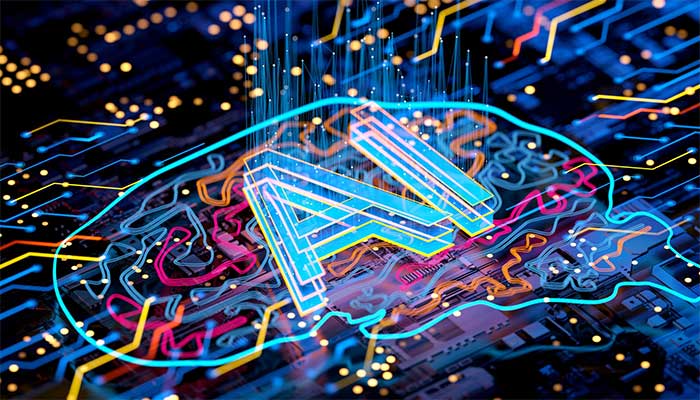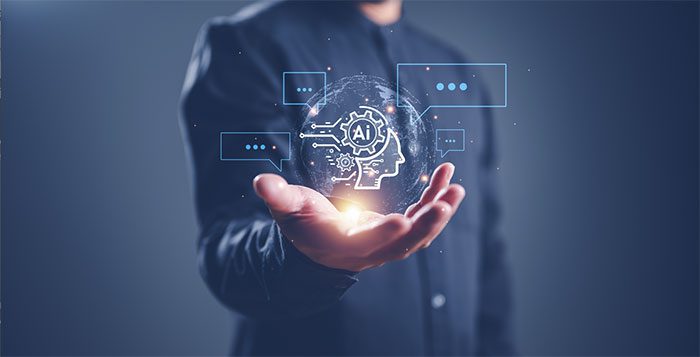In the digital age, information is considered a priceless treasure, yet many people do not truly enjoy equal rights and benefits regarding access to information.
Currently, the rise of artificial intelligence (AI) brings great hope in addressing this issue. AI technology not only enables rapid collection and organization of vast amounts of data, but more importantly, it provides this information to individuals intelligently, thereby achieving fair information distribution on a global scale.

As an emerging technology, AI is gradually infiltrating every aspect of our lives. (Photo: Foxnews).
Transforming Information Collection
With the ongoing development of science and technology, aided by artificial intelligence (AI), we have entered an era of information explosion. The traditional methods of information collection are changing and the emergence of AI brings us many conveniences and opportunities.
1. AI provides effective information filtering capabilities: Traditional information collection methods often require browsing through large volumes of documents, articles, or websites, while AI can help users quickly find accurate and relevant information through smart search tools. AI can employ machine learning and natural language processing technologies to automatically filter out content of interest to users, minimizing the hassle of information overload.
2. Personalized recommendation systems: AI technology can offer personalized recommendations based on users’ preferences and historical behavior. By analyzing search profiles, shopping preferences, or browsing habits, AI can intelligently suggest information that aligns with users’ interests, allowing them to obtain desired content more efficiently.

AI has a significant impact on human society, with one of its most important positive implications being the improvement of social equity and equal opportunities. (Photo: Economictimes).
3. AI voice assistants are changing how we retrieve information: AI voice assistants have become daily companions for many of us. By interacting with AI voice assistants, we can receive instant answers through voice commands. Moreover, AI voice assistants can deeply understand users’ needs through conversations and provide more accurate information. This method has transformed traditional information retrieval, making it more intuitive and convenient.
4. AI accelerates translation and multicultural communication: The application of AI in translation also facilitates communication between different cultures. AI technology can quickly and accurately translate from one language to another, providing everyone with broader access to information and enabling multicultural communication. This approach significantly reduces translation costs and speeds up global communication.

In the past, students in impoverished areas faced issues such as a lack of educational resources, insufficient teachers, and a clear disparity in educational opportunities compared to those in developed regions. However, with the development of AI technology, through online learning platforms and virtual educational resources, students can now access a wealth of high-quality educational materials from home, regardless of their geographical location or financial situation. (Photo: Zhihu).
Enhancing Education and Health Equity
The emergence of AI (artificial intelligence) has brought many positive implications for humanity, the most significant of which is the improvement of equity in education and healthcare.
Previously, educational and healthcare resources were often concentrated in specific regions and among certain groups of people, leading to disparities in education and healthcare access. However, with the advancement of AI technology, we are gradually achieving the goal of reducing inequality.
The application of AI technology in education has transformed traditional teaching methods and made knowledge acquisition more equitable. Through AI, students can receive personalized learning resources and supplementary learning tools. For instance, some online learning platforms combined with AI technology can tailor learning plans for students based on their situations and learning needs while providing corresponding study materials and practice questions.
This allows each student to learn effectively according to their abilities and interests, thereby enhancing their learning efficacy and unlocking their full potential. Additionally, AI can provide students with real-time question-and-answer features and learning guidance through natural language processing and machine learning algorithms, increasing fairness in how students access and utilize educational resources.

With the development of AI technology, we can receive remote doctor consultations, monitor physical health, and automatically remind patients to take their medication… This not only improves equity in healthcare services but also reduces the phenomenon of individuals being unable to receive timely medical assistance due to geographical limitations. (Photo: Foxnews).
In the healthcare sector, AI applications play a crucial role in enhancing the equity of healthcare resources. Due to geographical and economic constraints, many areas and groups of people cannot access high-quality healthcare services. The use of AI technology can compensate for the lack of geographical and human resources and provide remote healthcare services and intelligent health support.
For example, telemedicine technology can conduct remote diagnosis and treatment between doctors and patients through video communication and sensor monitoring, allowing patients to receive professional medical advice and treatment plans. Intelligent healthcare support systems, such as AI-based imaging diagnostics, can assist doctors in analyzing and diagnosing medical images quickly and accurately, enhancing the efficacy and precision of diagnoses. The application of these technologies allows healthcare resources to be distributed more evenly across different regions and populations, thereby improving the equity of healthcare services.
However, it cannot be denied that there are still challenges and obstacles in applying AI technology in education and healthcare. Issues such as data privacy and security, improving technical reliability, etc., still need addressing. Nevertheless, with the continuous development and improvement of technology, these issues can gradually be resolved.



















































